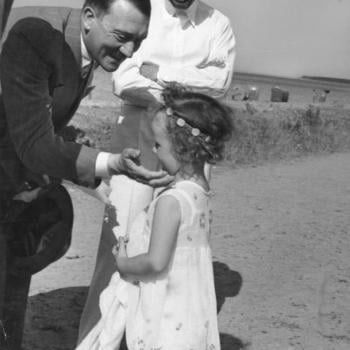Editors' Note: This article is part of a Public Square conversation on Billy Graham's life and legacy. Read other perspectives here.
When I was growing up in the 1950s and 1960s, Billy Graham was an object of some curiosity in my middle-class, liberal Republican (that wasn't an oxymoron in those days), mainline Protestant household. There was curiosity and, to be honest, a touch of smug condescension. We didn't doubt that Graham was a compelling preacher and an attractive figure. We did watch his crusades, after all. But this was religion at its exhibitionist worst, so far as my parents were concerned. There was always suspicion about those souls who walked toward the platform at the end of the service as the massed choir sang "Just As I Am, Without One Plea." Had they done this many times before? What was it about Graham's message that would make them do such a thing? Who were these people?
What I did not know then—and learned only decades later—was that I had inherited a generation's worth of my tribe's disdain for evangelical religion. It was part intellectual snobbery, part uptight fear of emotion, part liberal mistrust of what we commonly called "hellfire and damnation" preaching. (We called it that even when Graham never mentioned hellfire or damnation.) What I also didn't know then—what very few people knew then—was that the massive condescension that so many liberals and moderates showed toward the evangelical program and the evangelical style would reap a half-century's worth of reactive rage from those we had so disdained.
Our stereotyping followed the classic pattern: we were watching Billy Graham, but we were seeing Billy Sunday and Aimee Semple McPherson (and other adepts of the sawdust trail) who, in our minds, had long since been discredited as low-lights, or fakes, or both. A vision of evangelicalism as the religion of the poorly educated and . . . well, the poor . . . was evident in the circles I grew up in, and I doubt that I was alone in absorbing that view. We could barely conceive of the possibility that there might be an extraordinarily sophisticated and intelligent basis for much of evangelicalism. Class played a major role: too many in the Upper Middle in America looked down their noses at these folks, even held their noses. Such popular condescension—and the memory of such crystallizing events as Clarence Darrow's humiliation of William Jennings Bryan in the Scopes Trial and Harry Emerson Fosdick's public take-down of Fundamentalism—made evangelicals mad. Understandably.
To his credit, Billy Graham himself never bought into the rage. He was too dignified for that . . . and probably too smart. But his theological children (not to mention his biological child, Franklin Graham) became so angry at their mistreatment that they invested their religious view with a furious edge that, though it is now dulling, has cut a terrible swath through American life. What's more, their rage was a ripe pick for various conservative operatives and Market Fundamentalists who used it to advance their own causes. Who knows how long it will take for the effects of this sad chapter to subside?
I am an unreconstructed liberal/progressive Christian. (I am told that "convergent" is the adjective of choice now, but I'm not there yet.) I have plenty of disagreements with Billy Graham, and it is easy to critique some of his mistakes (his anti-Jewish conversations with Richard Nixon are particularly noxious). But I am also of the opinion that the recent decades of fundamentalist and evangelical wrath, while not traceable to a single cause, can be laid just as easily at the feet of us liberals and our intellectual snobbery as it can at the feet of this essentially gentle and good man who, in his 95th year, is looking back over a remarkable career. In my view, the gift of humility would have served my people well. For that matter, with Dr. Graham still offering a worthy example, it would serve us all well.
11/12/2013 5:00:00 AM




